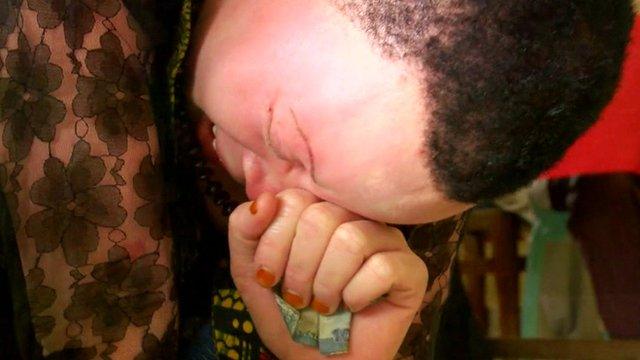Call to end 'stigma' for people with albinism in Wales
- Published
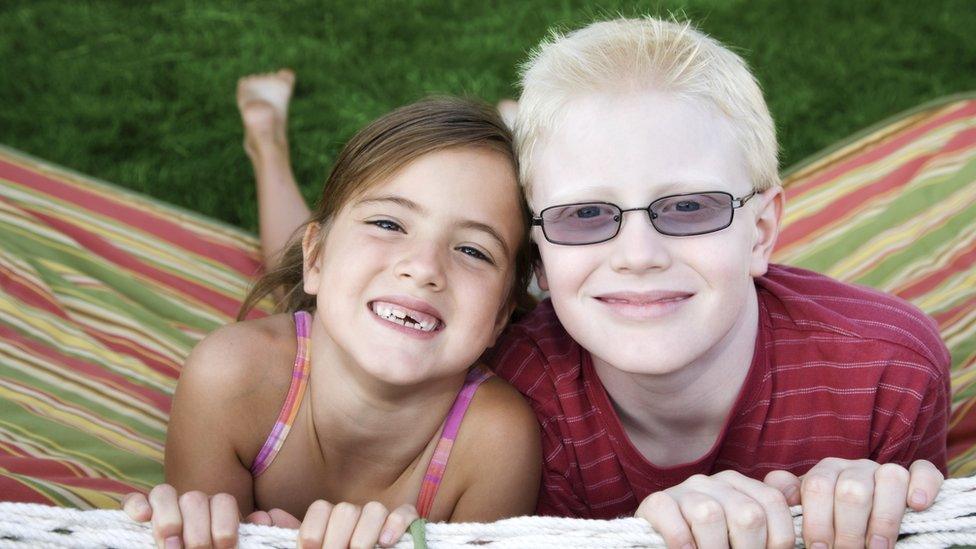
Calls have been made to end the stigma and stereotypes for the one-in-18,000 people in Wales living with albinism.
The rare genetic condition, which affects about 175 people in Wales, limits the body's production of melanin - the pigment which gives hair, skin and eyes their colour.
One Welsh sufferer said "negative portrayals", including in films, had a detrimental impact.
The charity Albinism Fellowship, external said it was working to raise awareness.
There are two types of albinism, one affecting the skin, hair and eyes (oculo-cutaneous albinism) and another that affects just the eyes (ocular-albinism).
Stigma associated with albinism exists in Wales, along with a lack of knowledge and awareness, according to one sufferer.
Neil Jones, 40, from Llanidloes, Powys, has ocular-albinism .
He said people with the condition are often stereotyped thanks in part to "negative portrayals in society", with Hollywood films repeat offenders.
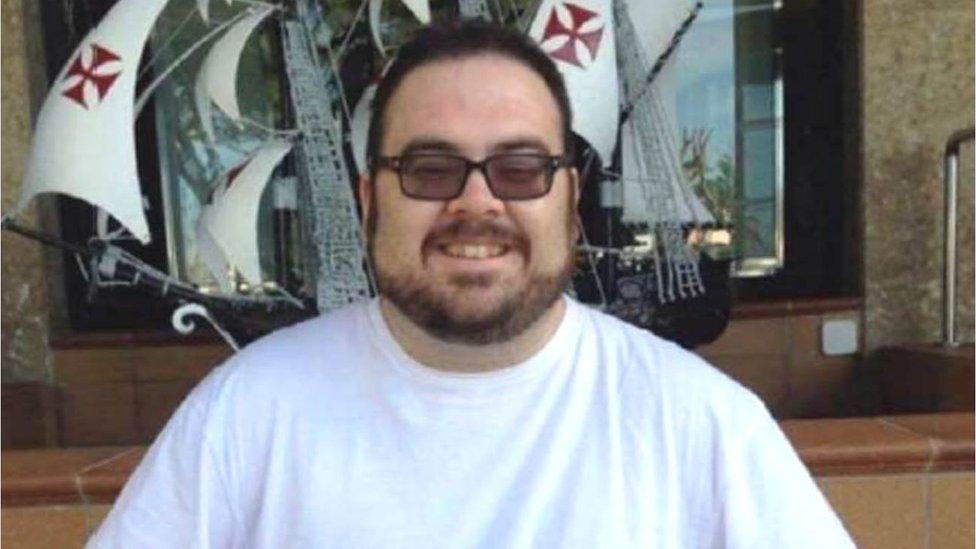
Mr Jones has ocular-albinism and is registered as partially-sighted
Mr Jones said research into the film industry showed 68 films between 1960 and 2006 portrayed an albino as an evil character.
"This does not help enlighten people's perception of albinism and seems to affirm that we are in some way bad," he said.
There is no specific Wales-based support for people with albinism.
The Albinism Fellowship, the official charity for people with albinism in the UK, said that, given there are only 3,000 sufferers in the UK, "not many people" will have come across someone with the condition, something which can affect general awareness.
No volunteers in Wales
The charity is run by volunteers whose "key aim is to provide advice and support".
Roselle Potts, chairwoman of the trustees, said they hold social events where people can meet others affected by albinism and share experiences.
She said an event was recently held in Cardiff, where there were "several kids who met other kids with albinism for the first time".
Ms Potts hopes to use her position as chairwoman to put support in place across the UK, as currently there are no volunteers based in Wales.
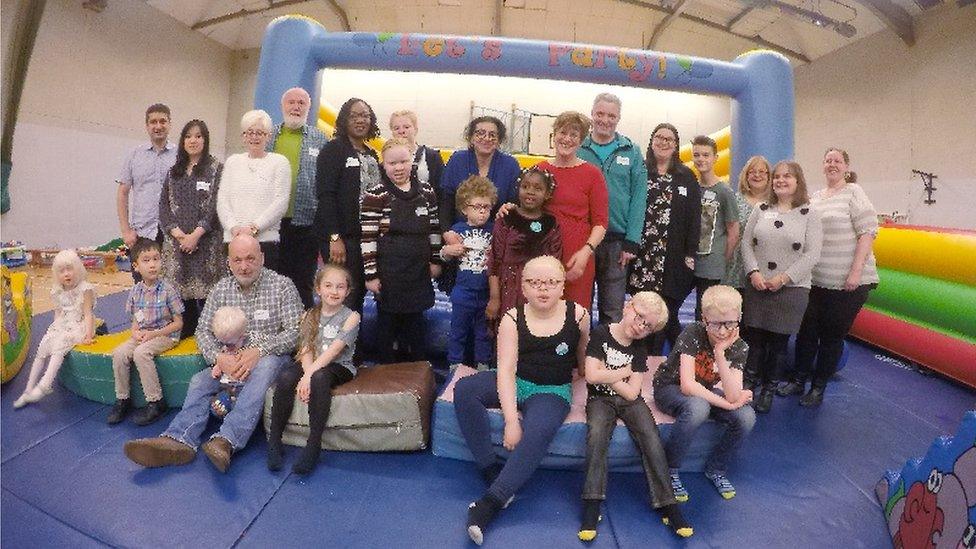
A social event for people affected by albinism was held earlier this year in Cardiff
- Published14 June 2016
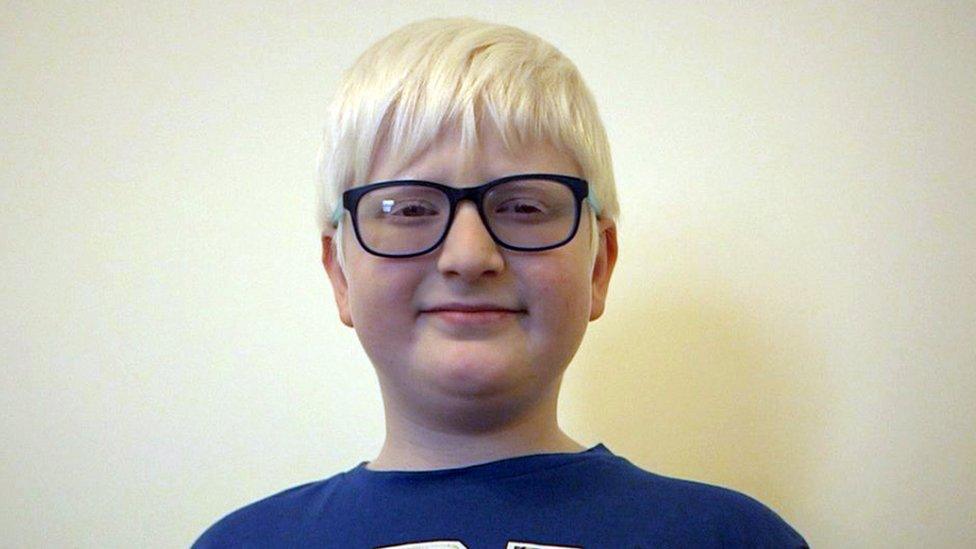
- Published14 June 2016
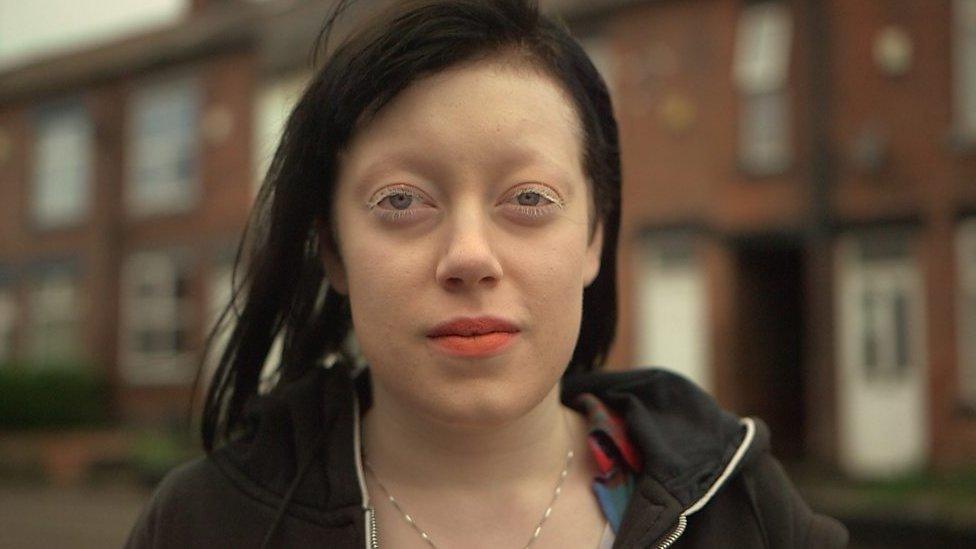
- Published9 December 2014
